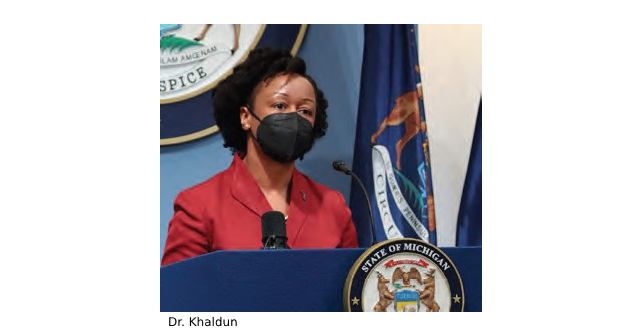
DR. KHALDUN: There are some things that you learn, at least that I’ve learned in my career, which is when you get into leadership roles, the important thing is not your technical knowledge. The important things are often how you inspire and lead teams, how you address problems, how you determine what’s urgent, what’s not urgent, what’s important, what’s not important. It’s also how you build a team, how you manage a budget, how you work through change. In my roles, I’ve done that and then some. Those are similar things that I do at CVS Health. That’s what leadership is.
Explore This Issue
ACEP Now: Vol 43 – No 10 – October 2024Yes, I’m in a company that is publicly traded now, right. It is a little different; how you engage is a little different. It’s also a company with 300,000 colleagues and businesses within the company. Things move very fast, so it’s fun. My ER doc self loves different things.
DR. TERRY: Did you seek out these roles, or were you sought after for the roles you’ve had?
DR. KHALDUN: What I’ve always sought out is an opportunity to be helpful. I sought out, of course, the fellowship at George Washington University because I had this itch where I wanted to get more training and understanding of health policy, and how I could be helpful for my career. I serendipitously was asked to be in those roles in in the city of Baltimore, city of Detroit, for the state of Michigan. But throughout my career I’ve taken chances and leaps. I’ve taken jobs where there was no job description where I wasn’t quite sure exactly what I was going to be doing, but I knew the true north of this seems to be an opportunity where I can potentially do some good and work with great people. And it is not lost on me that, as a Black woman from Detroit, I was behind the scenes doing operations but also trying to lead the masses of people. What it meant for there to be a woman of color in that role, and working on operations but also working behind the scenes on policies and decisions that were being made. I feel like I made an impact, and it matters that there’s diversity in the room when policies are being made.
DR. TERRY: You’ve spent your entire career trying to push the needle, certainly in your role in Michigan during the pandemic and pushing for positive change when it comes to health inequities. In the pandemic, there was amplification around how certain communities were impacted compared to others. Do you think we’re making progress when it comes to closing the gaps?
Pages: 1 2 3 4 5 | Single Page




No Responses to “This Emergency Physician Leader Works on Patients and Policy”